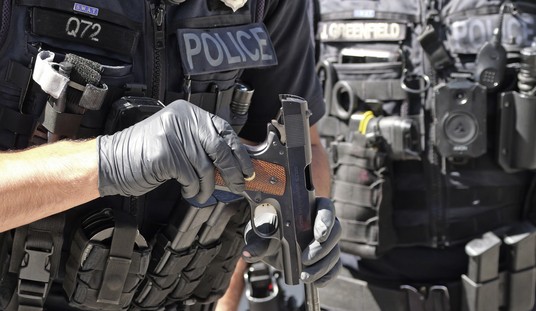Red flag laws are one of those measures that sounds like a good idea to many people. After all, taking guns away from people who might do something bad before they can? Why wouldn’t you want to do that?
Yet many other people, myself included, have an issue with these measures. Why? Because, in part, they don’t necessarily represent real threats, only someone else’s perception.
That’s highlighted in a piece from the Rochester Democrat and Chronicle titled, “Concerned about a loved one? How to file a protection order under New York’s Red Flag law.”
At face value, red flag laws are straightforward: Law enforcement, school officials and, in some states ― including New York ― family members can petition a court for an Extreme Risk Protection Order, which asks that an individual be barred from purchasing firearms and have any guns already in their possession confiscated for up to a year. The application becomes a civil case, and carries no criminal charges or penalties. Petitioners must include evidence that shows why an order is justified, and the individual in question has a chance to defend their right to carry at a hearing.
Advocates say the orders are intended to prevent suicides, fatal domestic disputes and mass shootings.
Jaclyn Schildkraut, who heads the Regional Gun Violence Research Consortium at the Rockefeller Institute of Government, said family members and close friends are the first to notice changes in behavior or mood that might signal someone is in danger.
They then go on to tell someone just how to get a red flag order against their loved one.
However, let’s also understand a few things the reporter here failed to note. First is that “notice changes in behavior” may signal a problem, but it also may not. For example, someone who has been an emotional punching bag and has finally had enough could be said to have a change in behavior, but are they a threat? Not really.
See, red flag laws and pieces that support the measures like this actually empower people like abusers, narcissists, and other horrible people. When their target finally stops playing nice–something they count on–they can then use the law to punish them.
You see, red flag laws don’t require proof of there being a problem. All it requires is one person saying there’s a change. They can claim they’ve become more argumentative, threatening, and all kinds of other things without having to provide a shred of evidence to back up the accusations.
“But it’s just temporary,” someone will say, and they’re not necessarily wrong.
Yet the problem is that people are being deprived of their rights who then have to go about trying to prove their innocence. That’s a lot harder than people think, which is why it’s not the legal standard we use when we prosecute crimes.
And even if the person seeking the order is well-meaning, taking someone’s guns isn’t always the best move. For example, if I’m depressed, taking my firearms would be a mistake, in part because going to the range and/or cleaning my weapons is a source of calm for me. It would actually remove a tool I can use to combat those dark feelings.
I’m not alone in that.
But to say that mere concern is and should be enough to strip someone of their right to keep and bear arms is problematic to an extreme, yet far too many people fail to see the issue.







Join the conversation as a VIP Member